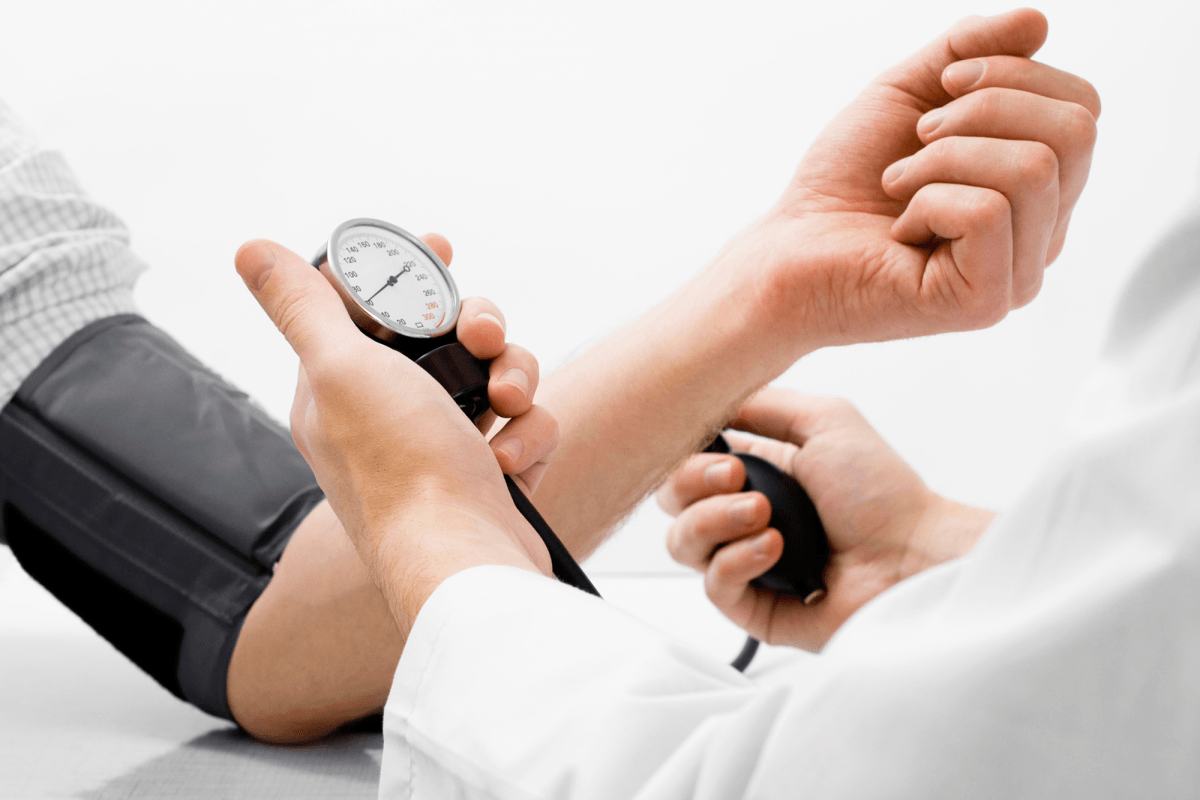About 30% of French people have high blood pressure. A percentage that has not been released since 2006. However, it is possible to act on assured causes of this disease. Monitoring your weight and diet is an excellent way to prevent cardiovascular disease!
Table of Contents
Ageing – First factor of Hypertension
Hypertension is extreme blood pressure in the veins. Though, “with age, the arterial system loses its flexibility. The arteries being extra rigid, the blood pressure increases mechanically.
Moreover, women often see their blood pressure increase at the time of menopause. During this period, screening is essential.
When this blood pressure is measured, the result must not exceed an average of 135/85 millimetres of mercury (mmHg) after three measurements in the morning three measurements in the evening for three days. The first value (the systolic pressure or SYS on the blood pressure monitor) increases as you get older. It is why it is accepted that in people over 80, “the threshold not to be exceeded is 145/85”, according to Professor Girerd.
Overweight, another risk factor (Hypertension)
“Overweight is a factor that helps high blood pressure,” says the cardiologist. Behind the extra pounds can sometimes be enough to restore average blood pressure values.
It is more important since this overweight is associate with other cardiovascular risk factors such as excess cholesterol and diabetes.
High salt intake increases blood pressure
Salt consumed extremely (more than 12 grams per day) can increase blood pressure (+ 1 mmHg of SYS tension for 1 gram of excess salt per day. Be careful, and it hides everywhere: in bread, cold cuts, cheese, smoked fish, stock cubes, soy sauces.
For reasons still unknown, only 40% of people with Hypertension will lower their blood pressure by reducing the salt in their diet. Drug treatment is required if blood pressure not drop enough after eating less salt for one to two weeks.
High blood pressure (Hypertension) – Salt sensitivity may increase the risk
Hence the importance of setting up more efficient genetic tests for sodium sensitivity. If the researchers already knew that salt sensitivity was more common in people with high blood pressure, they wanted to understand whether this sensitivity caused Hypertension or if it resulted from it. These new findings publish in the American Heart Association’s journal Hypertension.
This study looked at the salt sensitivity level of 1,604 Chinese adults by putting them on a low-salt diet for seven days, tracked by a high-salt diet for the same amount of time. After following contributors for an average of 7.4 years, researchers found that those with high sodium sensitivity were 43% more likely to develop high blood pressure. Given these results, the scientists, therefore, suggest that sodium sensitivity is a cause, and not a consequence, of high blood pressure.
“It supports the idea that we need to pay more attention to reducing salt intake in the general population,” said Drs. Now in the future, researchers hope it will be possible to test people with high salt sensitivity. Just as they routinely test for genetic variations to guide cancer diagnosis and treatment.
A family risk if you have hypertensive parents
Heredity largely explains the occurrence of Hypertension. A person whose parents diagnose as hypertensive around 40-45 years old must be extra vigilant and carefully monitor the evolution of their blood pressure from the age of 20.
Smoking raises blood pressure
Tobacco acts on the calibre of blood vessels. Blood pressure remains moderately elevated for twenty minutes after a cigarette. Smoking is therefore not directly answerable for high blood pressure. Still, this is not an incentive to smoke!
Stress: a one-time factor in Hypertension
Everyone knows the “white coat effect” in the doctor. You worry stressed, which raises your blood pressure. It is the reason why a single blood pressure measurement is not enough to make a diagnosis of Hypertension. To get a correct picture of your blood pressure. You have to repeat the measurements regularly with a tensiometer and average over 12 to 18 measurements.


